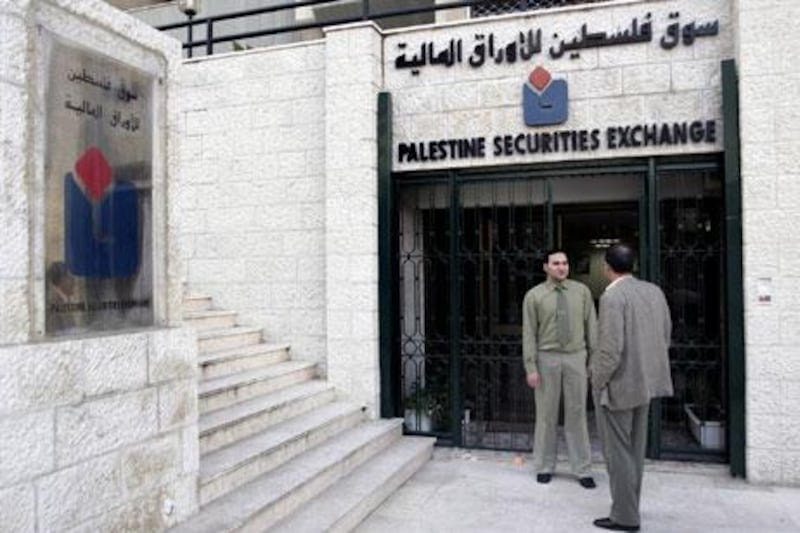RAMALLAH // The finance minister of the Palestinian Authority has resigned amid deepening economic malaise in the West Bank.
No reason was given by Palestinian authorities for the departure of Nabeel Kassis, who held his post for less than a year. He submitted his resignation on Thursday to the PA prime minister, Salam Fayyad, an aide to Mr Kassis confirmed today.
Mr Kassis took over as finance minister in May, but the economic situation has not improved during his tenure. Anger by trade unions and public servants over repeated delays in salary payments for some 150,000 PA employees has escalated.
"The overall situation is difficult, and his decision to leave is a symptom of that difficulty," said one PA official, who spoke on condition of anonymity. Another aide said Mr Kassis had been struggling under the "tremendous" pressure to cut the PA's budget.
During an interview last month with The National in his office in Ramallah, Mr Kassis, 67, expressed frustration over the inability or unwillingness of Arab states to meet the pledges of they made last year to an emergency fund. The cash reserve, aimed at helping the Palestinians weather the financial sanctions regularly imposed by Israel to punish them, was to total US$100 million (Dh367m) a month, the amount of taxes and import duties that Israel collects monthly from Palestinian transactions.
Mr Kassis also seemed combative as well as unenthusiastic about an end to Israeli occupation and the creation of an independent Palestinian state. Israel's behaviour, he said, "puts a big question mark on the whole undertaking of the political process that started with the establishment of the PA and which was supposed to end with a two-sate solution".
He said estimates of foreign aid to the PA for 2013, separate from the emergency fund, were close to $1 billion, a notable decline from the $1.8bn given in 2008, when Mr Fayyad headed the finance ministry.
He also questioned the state-building agenda adopted by the PA under Mr Fayyad's leadership at the time, which gained international media attention but ultimately failed to come to fruition by its declared deadline of 2011.
The optimism of many Palestinians and others was "obviously" misplaced, he said.
Mr Kassis served as tourism minister in 2002 and minister of planning a year later. He frequently participated in negotiations with Israel, starting with the joint Palestinian-Jordanian delegation to the Madrid Conference of 1991.
A political independent born in Ramallah, Mr Kassis earned a doctorate in nuclear physics from the American University of Beirut and joined Birzeit University in 1980.
hnaylor@thenational.ae





